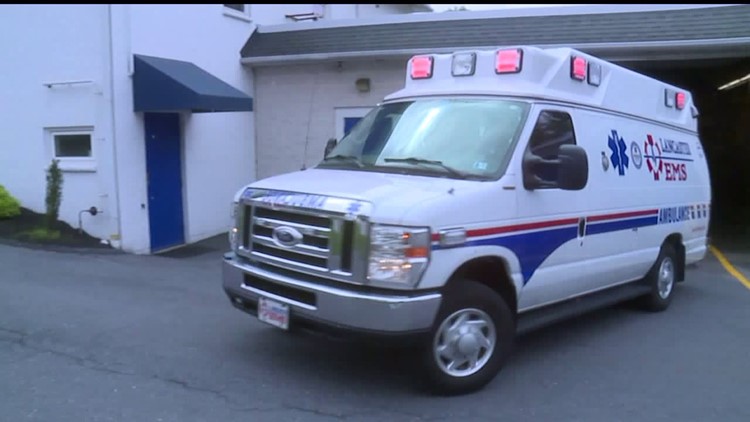LANCASTER, Pa. -- For the third straight year, police officer suicides exceeded line of duty deaths in the United States.
Local first responders are now sharing their battles with mental health issues.
FOX43's Grace Griffaton takes a closer look at the toll the uniform can take.
Lancaster Bureau Of Police lost a patrol officer last year after he took his own life.
The loss hit the department hard, and it really changed how it looks at mental health.
The flashing lights, the sirens, the tape, it's what civilians see.
What first responders see, smell, and hear may never go away.
"Just watching what they do at an autopsy to four children - one being the same age as my daughter. It was kind of a gut bunch," said Chief Jarrad Berkihiser, Lancaster Bureau of Police.
As Berkihiser described that scene, he tells FOX43 could still smell the smoke more than 10 years after the fire.
Flash back to August 22, 2003: Officers, including Berkihiser, respond to an arson on East Chestnut Street in Lancaster.
Four children perished that day.
"It was a homicide so I ended up spending 3 full days in the crime scene," explained Berkihiser.
It wasn't Berkihiser's first time seeing trauma either; he spent his first 10 years processing violent crime scenes.
"I was in a dark place in 2003, and it wasn't just one incident. What I found out? It was a culmination of multiple incidents over several years," he added.
Doctors diagnosed him with post traumatic stress disorder or PTSD.
PTSD develops in some people who experience a shocking, scary, or dangerous event.
Many people who are diagnosed suffer from flashbacks and bad dreams, and may avoid places and events where they could be reminded of the traumatic experience. They could be easily startled, have angry outbursts, or difficulty sleeping.
Many people will lose interest in activities they once enjoyed or feel badly about themselves and the world
'It can cause depression, anxiety. I experienced pretty vivid dreams of calls I was on," said Joe Carr, a paramedic for Lancaster EMS "I didn't realize I had PTSD and depression, and there were some things happening in my life, and it made me realized it..."
Carr has saved lives for the past 33 years.
"The heroin epidemic was a flareup of it, if you will, just because of the death of a lot of young people in the course of a year or two," said Carr.
"What they are seeing on a regular basis is not normal," said Berkihiser. "We're responding to situations that would absolutely terrify another member of the public or completely devastate them if they've seen some of the carnage we've seen."
According to Blue Help, a nonprofit organization run by active and retired police officers, at least 167 police officers took their own lives in 2018; that is not counting what went unreported.
In comparison, 163 died in the line of duty, according to the Officer Down Memorial Page.
"A lot of police departments hide the fact that a member committed suicide or they say they died unexpectedly. They don't talk about what had happened or it was suicide," added Berkihiser.
2018 marked the first time Berkihiser says the bureau of police truly began tackling its own mental health issues.
Heartbreak hit the department after a 19-year veteran with the force patrol officer Mark Gehron took his own life.
"I am not doing anything to remember mark by covering that up," said Berkihiser. "It doesn't help, and we have to hit it head on, and it was the first time here that we absolutely acknowledged it, and people talked about it more."
Berkihiser wants his officers to do the same; in fact, he did that.
Berkihiser asked leadership in 2003 for help.
"For a period of time, for about maybe about 3 years, I didn't go to any crime scenes involving children that can be anything from a violent death to a SIDS death," stated Berkihiser.
Berkihiser says first responders should talk to their family, friends, coworkers, even a therapist.
"We're normal people. We put on our pants one leg at a time like everyone else, and to get first responders to understand that what they are seeing on a regular basis is not normal," said Berkihiser.
Berkihiser says it's important for first responders to know it's okay to not be okay, and then, ask for help.
Mental health issues like PTSD can take a heavy toll on relationships.
If your loved one suffers from it, experts say it's important to educate yourself on its symptoms and effects, anticipate triggers, and to be a good listener.
Most importantly they say, don't forget to take care of yourself.
For more information on PTSD, click here.



